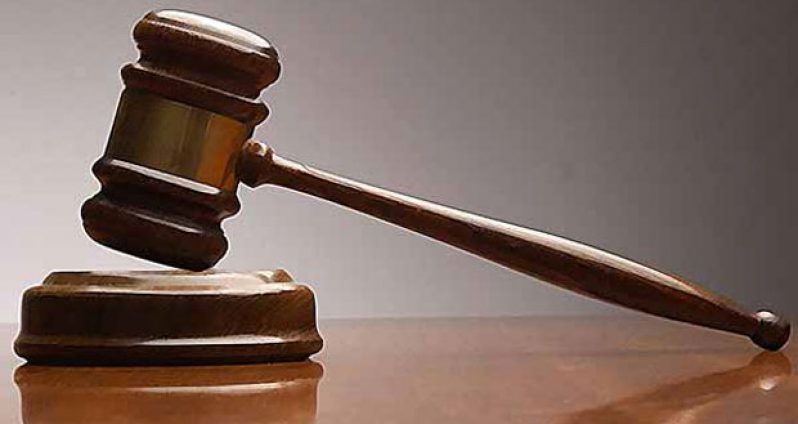The case of Winston McLenon
IN 2004, Winston McLenon, who was charged with manslaughter was at the end of the preliminary Inquiry committed to stand trial in the High Court.But to his dismay, the Director of Public Prosecutions (DPP) indicted him for murder instead of manslaughter and was told that the DPP could be right once the evidence on the depositions supported the new indictment.
But High Court judge Ian Chang referred to the murder indictment as procedurally unfair and irregular and quashed it on the grounds of procedural unfairness.
With the burden of murder behind him, the accused now faced the original charge of manslaughter with a $40, 000 bail as imposed by the Committal Magistrate.
On August 8, 2004, the accused appeared before Justice Ian Chang. He was charged with and committed to stand trial for manslaughter but was later indicted for the more aggravated offence of murder.
Before the members of the jury were sworn in and put in charge of the case, the accused was unrepresented by counsel. Judge Chang raised the issue of whether the DPP had the power to indict an accused with the aggravated offence of murder when he had been charged with and committed to stand trial for the lesser offence of manslaughter.
From the investigations that followed, the judge held the view that the Application by Robert Beresford for a Writ of Authority for the view that a magistrate could not lawfully commit an accused charged with manslaughter for the greater offence of murder and that the DPP could always indict an accused charged and committed for the offence of manslaughter with murder once the evidence on the depositions could support such a substituted charge.
But Judge Chang, in denying the appeal added, however that the Court was not prepared to say that the committal power of a magistrate was so limited and the power of the DPP so wide . However, denial of an opportunity to answer the substituted charge of murder at the preliminary inquiry did not per se constitute such procedural unfairness as would enable the court to quash the substituted charge of murder.
“The exercise of the powers of the magistrate and the DPP were circumscribed by the demands of procedural regularity and fairness.”
Candace Raphael represented the State while Khemraj Ramjattan represented the accused. Justice Chang said: “When the accused was arraigned in the High Court, he was unrepresented by counsel. With the concurrence of the accused, the Court undertook to make efforts to have the accused represented by a counsel assigned by the State.
“Before members of the jury were sworn in and put in charge of the case, the Court suo motu raised the issues whether the DPP had the power to indict an accused with the aggravated offence of murder when he had been charged with and committed to stand trial for the lesser offence of manslaughter and whether, on the assumption that the evidence on the deposition evidence sufficed to support a sufficient case for the greater offence of murder, the DPP had properly exercised such power.
“State counsel requested an adjournment for a few days to address the concerns of the Court and the adjournment was granted. In the interim the Court invited Mr. KhemraJ Ramjattan, the President of the Guyana Bar Association and lawyer with considerable experience in the practice of Criminal Law, to appear on behalf of the accused and to address the issues raised by the court.
“Mr. Ramjattan accepted the Court’s invitation and entered appearance for the accused on the resumption of the matter. The Court expresses its gratitude and appreciation for the readiness with which he responded to the Court’s request for assistance.
“I have no fault to find with the general principles of law put forward by counsel for the accused but I am, after full and careful consideration of all the provisions of Chapter 11, and of their history, unable to agree with the narrow interpretation suggested by him for S. 113. Such an interpretation would be entirely out of character with the rest of the Ordinance, the general scheme of which clearly demonstrates an intention to confer upon the Attorney General of this Colony wider powers than are enjoyed by the Attorney General of England in the bringing of persons to trial for indictable offences.”
Justice Chang in his judgment noted “if it would have been procedural irregular and unfair for the magistrate to have invited the accused to answer to the lesser charge only to commit him for the greater charge, it certainly would be procedurally unfair and irregular for the DPP to indict him for the greater offence of murder.
“I must mention that in the case of in an application by Robert Beresford Writ of Certiorari, Kissoon J. seems to have taken the view that under no circumstance can a magistrate lawfully commit an accused charged with manslaughter for the greater offence of murder and that the DPP can always indict an accused charged and committed for the offence of manslaughter with the greater offence of murder once the evidence on the depositions can support such a substituted charge.
“I am not prepared to say that the committal power of a magistrate under section 71 is so absolutely limited.
“Nor am I prepared to say that the power of the DPP under Section 113 (2) is so wide.
“However, I am prepared to say that the exercise of the powers of both these judicial officials is circumscribed by the demands of procedural regularity and fairness.”




.png)









